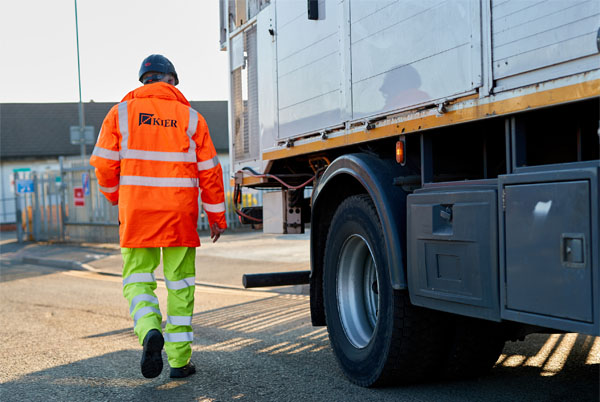Kier Highways’ carbon reduction targets have been validated by a global body as being in line with the latest science.
The Science Based Targets Initiative (SBTi) has validated the near-term, long-term, and net zero targets of Kier Transportation, Highways.
The validated targets include achieving net zero scope 1 and 2 emissions by 2039 and net zero scope 3 emissions by 2045, and these are supported by a series of greenhouse gas (GHG) emission reductions.

Kier said the targets demonstrate its commitment to achieving net zero carbon across its operations in line with the latest climate science and the Paris Agreement’s commitment to limit the global temperature increase to 1.5°C above pre-industrial levels.
The targets complement the Kier Group’s near-term and net zero targets, which have also been submitted to SBTi for validation.
Kier said its Highways business will be primarily using its transition to electric plant and fleet and its new Sustainable Sourcing Strategy as key drivers to ensure these targets are met effectively, with 18% of its fleet made up of electric and hybrid vehicles so far.
Matt Tompsett, head of environment and sustainability at Kier Transportation, said: ‘Reducing our emissions as quickly as possible in order to help limit the impact of climate change is a top priority for us.’
Kier said the targets set the minimum GHG reductions that Kier Transportation, Highways should achieve, but that it aims to accelerate its decarbonisation to achieve net zero scope 1 and 2 GHG emissions by 2030.
The SBTi is a global body formed as a collaboration between CDP, the United Nations Global Compact, World Resources Institute, and the World Wide Fund for Nature (WWF), enabling businesses to set ambitious emissions reductions targets in line with the latest climate science.





